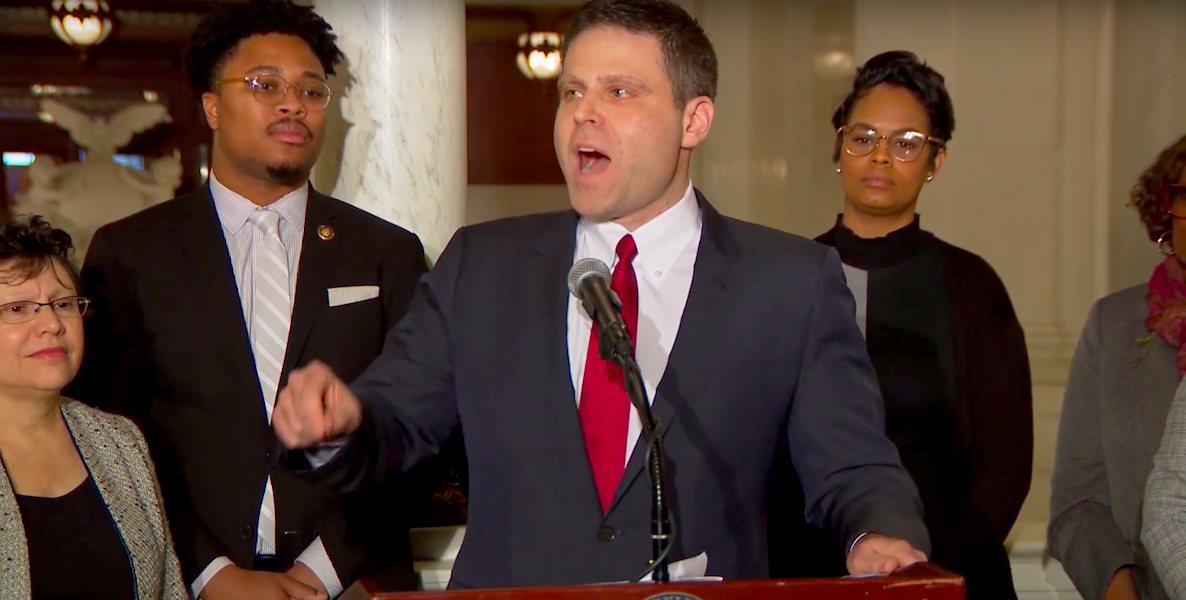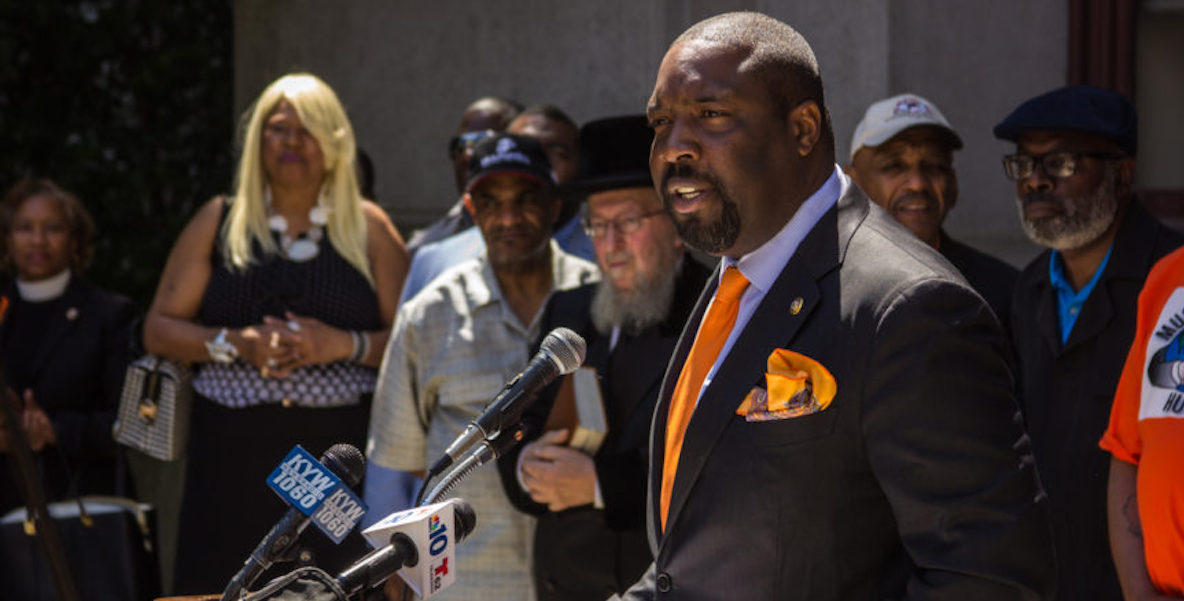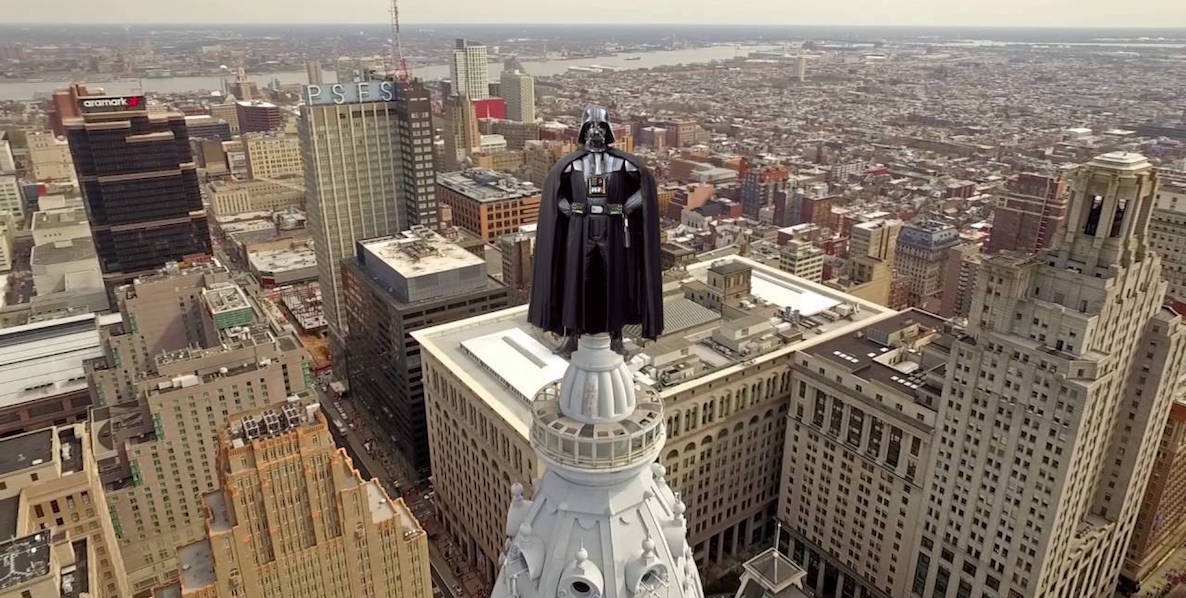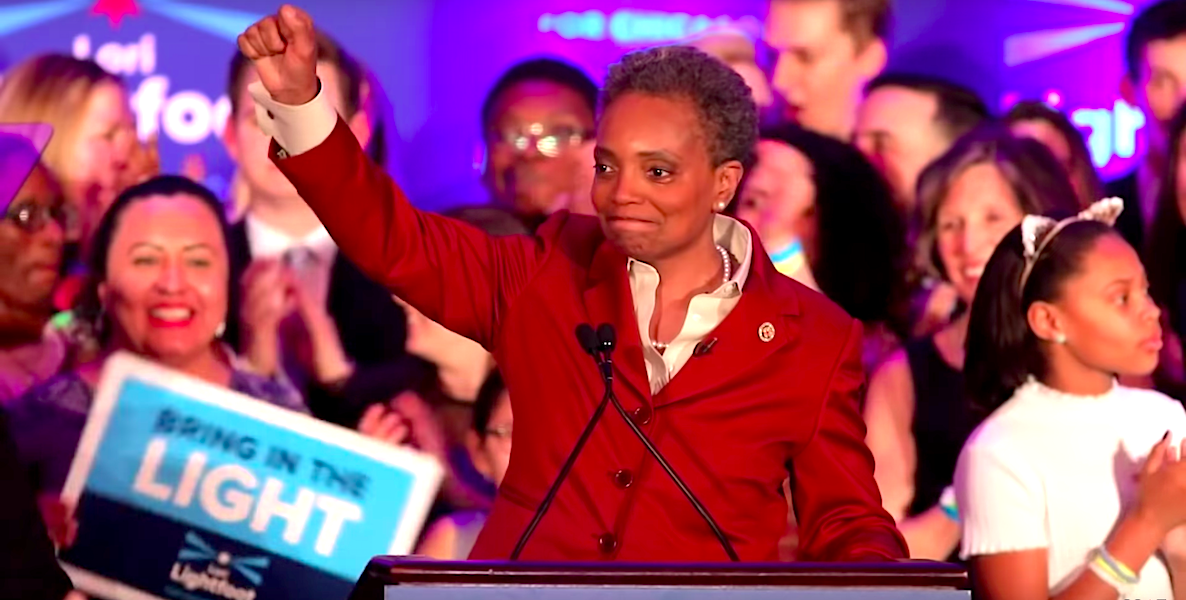The indictment of an alleged corrupt city councilman rocks a major Rust Belt city, which is struggling under the weight of rising crime, high poverty and slow economic growth. For this city, it’s just the latest in a string of public perp walks featuring those who have seemed to violate the public trust out of loyalty to an antiquated political machine. It’s a familiar script, but now it gives rise to an unknown, yet potentially transformative, political leader. She’s African-American, and gay. She runs against public corruption, demonizing the machine. She runs against the architect of an unpopular soda tax. She seems to be speaking to the keepers of the lowly and lawless status quo when she declares that “the taxpayer should not be the city’s ATM.” And…she wins, surprising all the insider mavens.

Prefer the audio version of this story? Listen to this article on CitizenCast below:
Audio Player
If only this scenario were our new story. Instead, it’s Chicago’s, where Lori Lightfoot upset the establishment last week to become mayor—in a landslide. Lightfoot, a former federal prosecutor, was a first time candidate up against some big names in the primary, among them William Daley (of those Chicago Daleys), our own former schools superintendent Paul Vallas, and African-American powerbroker Toni Preckwinkle, who heads Chicago’s Democratic party. Since Lightfoot’s obliteration of Preckwinkle in a runoff, much media attention has been paid to the fact that she will be the city’s first African-American woman and first openly gay mayor.
Help end corruption, voteDo Something
And that is cool, but, for us, it obscures what could be the real object lesson. It just may be that the most transformative element of Lightfoot’s election wasn’t about her identity so much as her message. Could the times be changing? Could rage against the machine in major metros be a new winning strategy?
In Chicago, the roots of Lightfoot’s improbable rise can arguably be found back in January, when Alderman Edward Burke, a longtime Chicago power broker, was indicted by the feds for allegedly extorting Burger King franchisees who sought his help on zoning matters. In a classic case, Burke directed the developers to make a $10,000 contribution to Preckwinkle’s campaign coffers, presumably in exchange for his help.
I disagree with Lori Lightfoot on a bunch of policies, but at least I know where she comes down on changing a corrosive system. Sadly, I know where Jim Kenney is on that, too.
Preckwinkle, who had been the driving force behind the city’s unpopular soda tax before it was rescinded, said she didn’t know about Burke’s shady attempt to help fund her campaign. But it wasn’t hard, following the indictment, for Lightfoot to define her opponent as the symbol of all the backroom ways Chicago had gone wrong.
Watch Lori Lightfoot's victory speechVideo
In her campaign, Lightfoot put corruption on the ballot, singling out the excesses of political cronyism at every opportunity, declaring that “the taxpayer shouldn’t be city government’s ATM.” Get this, Philly: She even pledged to issue an executive order on day one of her mayoralty that would end the city’s practice of “Aldermanic Privilege”—their unwritten rule giving local Aldermen (essentially Councilmen) control over zoning and permitting in their wards.
In the campaign, the tide turned for Lightfoot when she called a press conference to denounce a bill by a Preckwinkle ally in the state legislature that would have allowed Preckwinkle, in her role as Cook County Board President, to appoint the county assessor—rather than elect one, despite recent critical news reports about that office. When the state rep in question crashed Lightfoot’s news conference, the two went mano-a-mano right there; by the end of the confrontation, the 5’1” Lightfoot effectively towered over Rep. Robert Martwick, a ward leader.
Throughout this city, corruption and cronyism is met with a plaintive shrug by those we elect to look out for us.
“This is Rob Martwick, Exhibit A of the broken and corrupt political system,” Lightfoot said, turning to the cameras and pointing at the stunned state rep. The confrontation quickly went viral. Lori Lightfoot had communicated to everyday, taxpaying Chicagoans that she was on their side. Check it out and tell me this ain’t what we need in Philly.
About corruption by Larry PlattRead More
Now let’s compare and contrast Lightfoot’s eloquent example with what we have here in Philly. As in Chicago, we’ve had a long series of indictments and convictions of public officials. Most recent was the indictment of the Mayor’s biggest ally and benefactor, labor leader John Dougherty, and his lieutenant Councilman Bobby Henon. The Mayor’s response, in contrast to Lightfoot’s populist outrage? “I’m sad for them and their families,” he said of Dougherty and Henon, before attending a fundraiser put on by their union.
It wasn’t just Kenney, of course: Throughout the city, corruption and cronyism is met with a plaintive shrug by those we elect to look out for us. To this day, only one elected official—State Rep. Jared Solomon—has called on Henon to resign.
Kenney has been—rightfully—a full-throated critic of Donald Trump’s anti-Democratic ways. But you’re either for openness in government, or you’re not.
Now comes news that Kenney, who has long conducted city business on his private cell phone, has been deleting his text messages (were any from Dougherty?) even after he was told to preserve them. Kenney has been—rightfully—a full-throated critic of Donald Trump’s anti-Democratic ways. Is that just partisan posturing? After all, you’re either for openness in government, or you’re not.
We know from our history in this maddening political town that the worst kind of corruption is that which is perfectly legal. It goes by different names, running the gamut from “pay to play” to “Councilmanic Prerogative” to “cronyism”—like when the Mayor appointed Dougherty’s (since-indicted) chiropractor to head the Zoning Board. The perp walks and all those former lawmakers who are now law breakers on state-imposed vacations? Yes, that’s bad. But just as bad is a purely transactional system that, by its very nature, doesn’t even think about its fiduciary responsibility to the taxpayer. That’s why $33 million can go missing from the city’s bank account, hundreds of millions can go unreconciled, nearly $1 billion in accounting errors can be made…and no one gets held accountable. Because all that matters is the loyalties on the inside of the game.
We’re weeks away from a mayoral election that is promising to be about precisely nothing. That’s too bad, because if someone were to say what we all, on some level, know about how the city works, and say it in a way that channeled our outrage and called to our better angels—like a little known African-American gay woman just did in Chicago—change could be in our future.
I disagree with Lori Lightfoot on a bunch of policies, but at least I know where she comes down on changing a corrosive system. Sadly, I know where Jim Kenney is on that, too.
Photo via YouTube










